The examples and perspective in this article deal primarily with Europe and do not represent a worldwide view of the subject. (April 2016) (Learn how and when to remove this template message) |
| April Fools' Day | |
|---|---|
 An April Fools' Day prank marking the construction of the Copenhagen Metro in 2001 | |
| Also called | All Fools' Day |
| Type | Cultural, Western |
| Significance | Practical jokes, pranks |
| Observances | Comedy |
| Date | April 1 |
| Next time | 1 April 2019 |
| Frequency | Annual |
April Fools' Day (sometimes called All Fools' Day) is an annual celebration in some European and Western countries commemorated on April 1 by playing practical jokes and spreading hoaxes. The jokes and their victims are called April fools. People playing April Fool jokes often expose their prank by shouting "April fool(s)" at the unfortunate victim(s). Some newspapers, magazines and other published media report fake stories, which are usually explained the next day or below the news section in smaller letters. Although popular since the 19th century, the day is not a public holiday in any country.
Aside from April Fools' Day, the custom of setting aside a day for the playing of harmless pranks upon one's neighbour has historically been relatively common in the world.
Contents
Origins
A disputed association between April 1 and foolishness is in Geoffrey Chaucer's The Canterbury Tales (1392). In the "Nun's Priest's Tale", a vain cock Chauntecleer is tricked by a fox on Syn March bigan thritty dayes and two. Readers apparently understood this line to mean "32 March", i.e. April 1. However, it is not clear that Chaucer was referencing April 1. Modern scholars believe that there is a copying error in the extant manuscripts and that Chaucer actually wrote, Syn March was gon. If so, the passage would have originally meant 32 days after March, i.e. 2 May, the anniversary of the engagement of King Richard II of England to Anne of Bohemia, which took place in 1381.
In 1508, French poet Eloy d'Amerval referred to a poisson d’avril (April fool, literally "Fish of April"), possibly the first reference to the celebration in France. In the Middle Ages, New Year's Day was celebrated on March 25 in most European towns. In some areas of France, New Year's was a week-long holiday ending on April 1. Some writers suggest that April Fools' originated because those who celebrated on January 1 made fun of those who celebrated on other dates. The use of January 1 as New Year's Day was common in France by the mid-16th century, and this date was adopted officially in 1564 by the Edict of Roussillon.
In 1539, Flemish poet Eduard de Dene wrote of a nobleman who sent his servants on foolish errands on April 1.
In the Netherlands, the origin of April Fools' Day is often attributed to the Dutch victory at Brielle in 1572, where the Spanish Duke Álvarez de Toledo was defeated. "Op 1 april verloor Alva zijn bril" is a Dutch proverb, which can be translated to: "On the first of April, Alva lost his glasses." In this case, the glasses ("bril" in Dutch) serve as a metaphor for Brielle. This theory, however, provides no explanation for the international celebration of April Fools' Day.
In 1686, John Aubrey referred to the celebration as "Fooles holy day", the first British reference. On April 1, 1698, several people were tricked into going to the Tower of London to "see the Lions washed".
Although no Biblical scholar or historian are known to have mentioned a relationship, some have expressed the belief that the origins of April Fool's Day may go back to the Genesis flood narrative. In a 1908 edition of the Harper's Weekly cartoonist Bertha R. McDonald wrote:
Authorities gravely back with it to the time of Noah and the ark. The London Public Advertiser of March 13, 1769, printed: "The mistake of Noah sending the dove out of the ark before the water had abated, on the first day of April, and to perpetuate the memory of this deliverance it was thought proper, whoever forgot so remarkable a circumstance, to punish them by sending them upon some sleeveless errand similar to that ineffectual message upon which the bird was sent by the patriarch".
Longstanding customs
This section needs additional citations for verification. (March 2017) (Learn how and when to remove this template message) |
United Kingdom
In the UK, an April Fool joke is revealed by shouting "April fool!" at the recipient, who becomes the "April fool". A study in the 1950s, by folklorists Iona and Peter Opie, found that in the UK, and in countries whose traditions derived from the UK, the joking ceased at midday. A person playing a joke after midday is the "April fool" themselves.
In Scotland, April Fools' Day was traditionally called 'Huntigowk Day', although this name has fallen into disuse. The name is a corruption of 'Hunt the Gowk', "gowk" being Scots for a cuckoo or a foolish person; alternative terms in Gaelic would be Là na Gocaireachd, 'gowking day', or Là Ruith na Cuthaige, 'the day of running the cuckoo'. The traditional prank is to ask someone to deliver a sealed message that supposedly requests help of some sort. In fact, the message reads "Dinna laugh, dinna smile. Hunt the gowk another mile." The recipient, upon reading it, will explain he can only help if he first contacts another person, and sends the victim to this next person with an identical message, with the same result.
In England a "fool" is known by different names around the country, including a "noodle", "gob", "gobby" or "noddy".
Ireland
In Ireland, it was traditional to entrust the victim with an "important letter" to be given to a named person. That person would then ask the victim to take it to someone else, and so on. The letter when finally opened contained the words "send the fool further".
Prima aprilis in Poland
In Poland, prima aprilis ("1 April" in Latin) as a day of jokes is a centuries-long tradition. It is a day in which many jokes are told; various hoaxes – sometimes very sophisticated – are prepared by people, media (which often cooperate to make the "information" more credible) and even public institutions. Serious activities are usually avoided, and generally every word said on April 1st can be a lie, or a joke. The conviction for this is so strong that the Polish anti-Turkish alliance with Leopold I signed on April 1, 1683, was backdated to March 31. However, for some in Poland prima aprilis ends at noon of April 1st, and prima aprilis jokes after that hour are considered inappropriate and not classy.
Nordic countries
Danes, Finns, Icelanders, Norwegians and Swedes celebrate April Fools' Day (aprilsnar in Danish; aprillipäivä in Finnish). Most news media outlets will publish exactly one false story on April 1; for newspapers this will typically be a first-page article but not the top headline.[17]
April fish
In Italy, France, Belgium, The Netherlands, and French-speaking areas of Switzerland and Canada, April 1 tradition is often known as "April fish" (poissons d'avril in French, aprilvis in Dutch or pesce d'aprile in Italian). This includes attempting to attach a paper fish to the victim's back without being noticed. Such fish feature prominently on many late 19th- to early 20th-century French April Fools' Day postcards. Many newspapers also spread a false story on April Fools' Day, and a subtle reference to a fish is sometimes given as a clue.[citation needed]
India
In India, there have been numerous references to April Fools' Day in both cinema and popular literature and people are jovially associated with the day. However, this is not any intrinsic part of India's ancient culture.[18]
Lebanon
In Lebanon, an April Fool joke is revealed by shouting "???? ????? !" (which means "Aprils fool!") at the recipient, who becomes the "April fool".[citation needed]
Spanish-speaking countries
In many Spanish-speaking countries (and the Philippines), "Dia de los Santos Inocentes" (Holy Innocents Day) is celebrated in late December (27, 28 or 29 depending of the denomination, or January 10th for East Syrians), which is very similar to April Fools. Often, people play pranks on each other, trick others, etc.[citation needed]
Pranks
As well as people playing pranks on one another on April Fools' Day, elaborate practical jokes have appeared on radio and TV stations, newspapers, websites, and have been performed by large corporations. In one famous prank from 1957, the BBC broadcast a film in their Panorama current affairs series purporting to show Swiss farmers picking freshly-grown spaghetti, in what they called the Swiss Spaghetti Harvest. The BBC were later flooded with requests to purchase a spaghetti plant, forcing them to declare the film a hoax on the news the next day.[19]
With the advent of the Internet and readily available global news services, April Fools' pranks can catch and embarrass a wider audience than ever before.[20]
Comparable prank days
December 28, the equivalent day in Spain, Hispanic America and the Philippines, is also the Christian day of celebration of the "Day of the Holy Innocents". The Christian celebration is a holiday in its own right, a religious one, but the tradition of pranks is not, though the latter is observed yearly. After somebody plays a joke or a prank on somebody else, the joker usually cries out, in some regions of Hispanic America: Inocente palomita que te dejaste engañar ("You innocent little dove that let yourself be fooled"), not to be confused with the second translation of palomita, which is popcorn.
In Mexico, the phrase is ¡Inocente para siempre! which means "Innocent forever!". In Argentina, the prankster says ¡Que la inocencia te valga!, which roughly translates as a piece of advice on not to be as gullible as the victim of the prank. In Spain, it is common to say just ¡Inocente! (which in Spanish can mean "Innocent!", but also "Gullible!").[21]
In Colombia, the term used is "Pásala por Inocentes", which roughly means: "Let it go; today it's Innocent's Day."
In Belgium, this day is also known as the "Day of the innocent children" or "Day of the stupid children". It used to be a day where parents, grandparents, and teachers would fool the children in some way. But the celebration of this day has died out in favor of April Fools' Day.
Nevertheless, on the Spanish island of Menorca, Dia d'enganyar ("Fooling day") is celebrated on April 1 because Menorca was a British possession during part of the 18th century. In Brazil, the "Dia da mentira" ("Day of the lie") is also celebrated on April 1.[21]
In Iran, on 13th of the first month (Farvardin) of the Iranian calendar (known as Nature's day or Sizdah Be-dar, 1st or 2nd of April), it is common that people spread false news and then shout "Doroughe sizdah" (lie of 13) to the victim. Some of the newspapers and journals also do the same and then somewhere in the bottom of page write "Doroughe sizdah" with inverse letters.[
Watch movie April Fool online on Amazon
Watch movie April Fool online
Watch The Movie On PrimeAayee Milan Ki Raat Full HD Movie Download
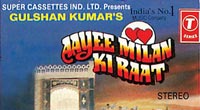
Jamai Raja Full HD Movie Download

Chance Pe Dance Full HD Movie Download

Do Ustaad Full HD Movie Download

Main Balwan Full HD Movie Download
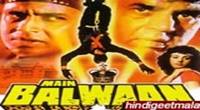
Jaan Hatheli Pe Full HD Movie Download

Aandhi Toofan Full HD Movie Download

Pudhu Pudhu Arthangal Full HD Movie Download

Haage Summane Full HD Movie Download

Satyameba Jayate Full HD Movie Download
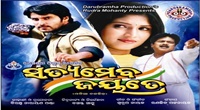
Hamar Sangi Bajrangbali Full HD Movie Download
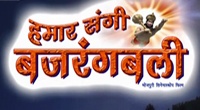
Maun Full HD Movie Download
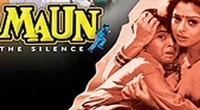
Manassu Full HD Movie Download
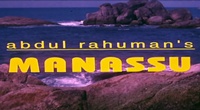
Porkkaalam Full HD Movie Download
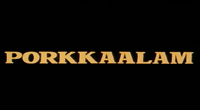
Bheeshma Partigyaa Full HD Movie Download

Krishna Sudama Full HD Movie Download

Nenja Thottu Chollu Full HD Movie Download

Anbukku Naan Adimai Full HD Movie Download

Aayudham Full HD Movie Download

Gruha Lakshmi Full HD Movie Download
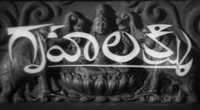
Kalangarai Vilakkam Full HD Movie Download

Download latest Movie from bollywood
- 1> baaghi 3
- 2> THE SKY IS PINK MOVIE FULL STORY AND REVIEW
- 3> Luka Chuppi
- 4> TO ALL THE BOYS I’VE LOVED BEFORE
- 5> Kabir Singh
- 6> Street Dancer 3D
- 7> Simmba
- 8> Gone Girl
- 9> The Girl Who Lived
- 10> Ludo
- 11> DILWALE DULHANIA LE JAYENGE
- 12> GUILTY
- 13> The Godfather
- 14> Adventures of Rusty
- 15> Sooryavanshi
- 16> Satyameva Jayate 2
- 17> Thappad
- 18> Bhool Bhulaiyaa 2
- 19> KGFChapter 2
- 20> Mardaani 2
- 21> Pinjar
- 22> Shivaji maharaj
- 23> Ek Villian 2
- 24> Hungama 2
- 25> Divergent
- 26> Mumbai Saga
- 27> The Internship
- 28> HIT (telugu)
- 29> Panga
- 30> The perfect date
- 31> 16 December
- 32> Gopala Gopala (Telugu)
- 33> Brahmastra
- 34> Gangubai Kathiawadi
- 35> Manmadhudu
- 36> Nenu local
- 37> Mahanati
- 38> Shatamanam bavathi
- 39> Lagaan
- 40> After
- 41> MOM
- 42> Shamshera
- 43> Raguvaran BTech
- 44> Khakee
- 45> The villain
- 46> OM
- 47> Mr. perfect
- 48> Bueatifull mind
- 49> Hichki
- 50> Gabbar Singh
- 51> Jogi
- 52> Before Sunrise
- 53> Before Sunset
- 54> Before Midnight
- 55> The Big Bull
- 56> Top Gun: Maverick
- 57> The Purge
- 58> The Sky is Pink
- 59> Laxmmi Bomb
- 60> Sadak 2
- 61> Sufna
- 62> Prithviraj
- 63> PK
- 64> Coolie No 1(2020)
- 65> Black Widow
- 66> Dear Zindagi
- 67> Dil Bechara
- 68> PHIR HERA PHERI
- 69> WAR
- 70> Dostana
- 71> RRR: Roudram Ranam Rudhiram
- 72> Maidan
- 73> Dabbang 3
- 74> Chhalaang
- 75> life as we know it
- 76> SherShaah
- 77> Sandeep Aur Pinky Faraar
- 78> Event Horizon
- 79> 83
- 80> Radhe: Your Most Wanted Bhai
- 81> Gunjan Saxena: The Kargil Girl
- 82> Mr India
- 83> Vivah
- 84> Anokha Bandhan
- 85> Ghost
- 86> Bhoot: Part One - The Haunted Ship
- 87> Haseen Dilruba
- 88> Laal Singh Chaddha
- 89> Qismat
- 90> Rajput
- 91> Drive
- 92> Dil Chahta Hai
- 93> Dil Ki Baazi
- 94> Dil Ka Rishta
- 95> Teesri Manzil
- 96> Dil
- 97> Love Aaj Kal
- 98> Khaali Peeli
- 99> Bunty Aur Babli 2
- 100> Atrangi Re
- 101> Gulabo Sitabo
- 102> Jodi
- 103> Suraj Pe Mangal Bhari
- 104> Deewana
- 105> Attack
- 106> Sardar Udham Singh
- 107> Toofan
- 108> THE LOVEBIRDS
- 109> Jersey
- 110> Ginny Weds Sunny
- 111> Thalaivi
- 112> Shiddat
- 113> Angels vs Zombies
- 114> Koi Mil Gya
- 115> Thank God
- 116> Bhuj: The Pride of India
- 117> Hum Aapke Hain Kaun
- 118> The Platform
- 119> Bird Box
- 120> Roohi Afzana
- 121> Torbaaz
- 122> Nikamma
- 123> World War Z
- 124> Extraction
- 125> Train to Busan
- 126> Life of Pi
- 127> SHAADI MEIN JROOR AANA
- 128> Himmat Aur Mehnat
- 129> To All The Boys: P.S. I Still Love You
- 130> Mimi
- 131> Good Newwz
- 132> Shubh Mangal Zyada Saavdhan
- 133> Raabta
- 134> Harry Potter and the Philosopher's Stone
- 135> Harry Potter and the Chamber of Secrets
- 136> Chhapaak
- 137> War of the Worlds
- 138> Harry Potter and the Prisoner of Azkaban
- 139> Harry Potter and the Goblet of Fire
- 140> MURDER MYSTERY
- 141> Shakuntala Devi
- 142> Bachchan Pandey
- 143> Jayeshbhai Jordar
- 144> Sheer Qorma
- 145> Saina
- 146> 'O' Pushpa I hate tears
- 147> Kedarnath
- 148> MS Dhoni The Untold Story
- 149> Chhichhore
- 150> Badhaai Ho
- 151> Unstoppable
- 152> Oz the Great And Powerful
- 153> The Girl on the Train
- 154> Haathi Mere Saathi 2020
- 155> The Conjuring: The Devil Made Me Do It
- 156> Gandhi Se Pehle Gandhi
- 157> The Song of Scorpions
- 158> Srimanthudu
- 159> Hello Guru Prema Kosame
- 160> Beauty and The Beast
- 161> Black Panther
- 162> Charlie and the Chocolate Factory
- 163> Bole Chudiyan
- 164> Fidaa
- 165> Duvvada Jagannadham
- 166> Bruce Lee: The Fighter
- 167> Hyper
- 168> Yaara
- 169> Red (2020)
- 170> Shivam
- 171> That Is Mahalakshmi
- 172> Nishabdham
- 173> Aashram 2020 web series
- 174> Laxmii
- 175> Mismatched
- 176> STUDENT OF THE YEAR 2
- 177> NAIL POLISH
- 178> Ramprasad Ki Tehrvi
- 179> KAAGAZ
- 180> 12 o Clock
- 181> The Power
- 182> bolo hau
- 183> Tribhanga
- 184> JAMUN
- 185> Madam Chief Minister
- 186> Maasaab
- 187> Aadhaar
- 188> Tanhaji
- 189> Bhaagi 3
- 190> Bhootnath
- 191> MALANG
- 192> Jai Mummy Di
- 193> Haathi Mere Saathi 2021
- 194> Shakeela
- 195> Unpaused
- 196> Annayya
- 197> Vamsoddharakudu
- 198> Mrugaraju
- 199> Narasimha Naidu
- 200> Sankranti
- 201> Manasu Maata Vinadhu
- 202> Anjaane
- 203> Apaharan
- 204> Bachke Rehna Re Baba
- 205> Bewafaa
- 206> Roohi
- 207> Radhe
- 208> Zindagi Khoobsoorat Hai
- 209> Yeh Mohabbat Hai
- 210> Yeh Kya Ho Raha Hai?
- 211> The Tomorrow War
- 212> DehradunDiary
- 213> Meri Shaadi Karaoo
- 214> Matruu Ki Bijlee Ka Mandola
- 215> No One Killed Jesica
- 216> Aag Ka Goola
- 217> Eight Million Dollars
- 218> Three Hundred
- 219> Cats and Dog
- 220> Decoy
- 221> Gold Rush
- 222> You Have Got Mail
- 223> Final Destination three
- 224> Tofan
- 225> Jungle
Request for Download movie April Fool
- Bollywood movies
- Latest Bollywood movies
- Download all bengali movies
- Download all bhojpuri movies
- Download all english movies
- Download all gujarati movies
- Download all hindi movies
- Download all kannada movies
- Download all malayalam movies
- Download all marathi movies
- Download all oriya movies
- Download all punjabi movies
- Download all tamil movies
- Download all telugu movies
- Bollywood action movies
- Bollywood adventure movies
- Bollywood animation movies
- Bollywood classical movies
- Bollywood comedy movies
- Bollywood crime movies
- Bollywood devotional movies
- Bollywood documentary movies
- Bollywood drama movies
- Bollywood family movies
- Bollywood fantasy movies
- Bollywood historical movies
- Bollywood history movies
- Bollywood horror movies
- Bollywood musical movies
- Bollywood mystery movies
- Bollywood mythological movies
- Bollywood patriotic movies
- Bollywood romance movies
- Bollywood romantic movies
- Bollywood sci-fi movies
- Bollywood social movies
- Bollywood spiritual movies
- Bollywood sports movies
- Bollywood suspense movies
- Bollywood thriller movies
- Bollywood war movies
- Hot actress list
- Hot gujarati actress list
- Hot tamil actress list
- Hot bhojpuri actress list
- Hot assam actress list
- Hot bihari actress list
- Hot jammu and kashmir actress list
- Hot gujarati actress list
- Hot haryana actress list
- Hot konkani actress list
- Hot marathi actress list
- Hot odia actress list
- Hot punjabi actress list
- Hot rajasthani actress list
- Hot kannada actress list
- Hot malayalam actress list
- Hot telugu actress list
- Hot tulu actress list
- Hot Actress list from Indian city
- Hot actress list from ahmedabad
- Hot actress list from alappuzha
- Hot actress list from bangalore
- Hot actress list from bangalore
- Hot actress list from bhopal
- Hot actress list from chandigarh
- Hot actress list from chennai
- Hot actress list from guwahati
- Hot actress list from hyderabad, india
- Hot actress list from indore
- Hot actress list from jaipur
- Hot actress list from kannur
- Hot actress list from kochi
- Hot actress list from kolkata
- Hot actress list from kollam
- Hot actress list from kottayam
- Hot actress list from kozhikode
- Hot actress list from lucknow
- Hot actress list from madurai
- Hot actress list from mangalore
- Hot actress list from mumbai
- Hot actress list from mysore
- Hot actress list from new delhi
- Hot actress list from patna
- Hot actress list from pune
- Hot actress list from thiruvananthapuram
- Hot actress list from thrissur
- Hot actress list from tiruchirappalli
- Hot actress list from vijayawada
- Hot actress list from visakhapatnam
- All Bollywood Movies
- Bollywood Celeb
- >Art Director
- >Audiography
- >Background Music
- >Banner
- >Choreographer
- >Cinematographer
- >Costume Designer
- >Dialogue Writer
- >Director
- >Distributor
- >Editor
- >Executive Producer
- >Hair Stylist
- >Lyricist
- >Music Director
- >Photographer
- >Playback Singers
- >Presenter
- >Producer
- >Production Company
- >Production Designer
- >Screenplay
- >Singer
- >Sound
- >Actor
- >Story Writer
- >Studio
- >Video Director
- >Miscellaneous
- >Publicity (pro)
- >Web Creator
- >Production Labs
- >Publicity Design
- >Publicity Stills
- >Writer
- >Miscellaneous Artists
- >Visual Effects
- >Reporter
- >Music Company
- >Shooting Studios
- >Picturised On
- >Line Producer
- >Co Producer
- >Asst Director
- >Casting Director
- >Cinematography
- >Choreography
- >Dialouge
- >Editing
- >Lyrics
- >Music
- >Story
- >Playback Singer Female
- >Playback Singer Male
- >Actor In A Comic Role (male/female)
- >Child Artiste
- >Ensemble Cast
- >Actor Popular Choice (male)
- >Actor Popular Choice (female)
- >Sa Re Ga Ma Pa Song Of The Year
- >Actor In Supporting Role
- >Actress In Supporting Role
- >Actor In Leading Role
- >Art Direction
- >Actress In Leading Role
- >Sound Recording
- >Costume Design
- >Special Effects
- >Action
- >Actor In A Negative Role
- >Lifetime Achievement Award
- >Cinematic Exellence (director)
- >Cinematic Exellence (male)
- >Cinematic Exellence (female)
- >International Male Icon
- >International Female Icon
- >Actor In A Supporting Role (male)
- >Actor In A Supporting Role (female)
- >Actor In A Comic Role
- >Playback Singer (male)
- >Playback Singer (female)
- >Most Promising Debut (female)
- >Most Promising Debut (male)
- >Most Promising Director
- >Sound Design
- >Lifetime Jodi
- >Marketed Film
- >Jury Award For Best Actor
- >Jury Award For Best Actress
- >Jury Award For Best Film
- >Jury Award For Best Director
- >Playback Singer(male)
- >Lifetime Acheivement Award (male)
- >Excellence Award
- >Jodi Award
- >Performer Of The Year
- >Presented By
